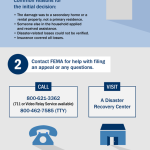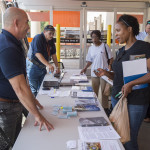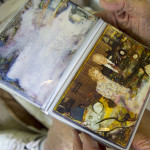BATON ROUGE, La. – Nonprofit organizations that experienced damage or losses from the August floods may apply for Federal Emergency Management Agency Public Assistance grants to help them get back to the business of helping others.
As part of its mission, FEMA provides grants to state, tribal and local governments and certain private nonprofits through its Public Assistance program. For the August floods, these grants reimburse 90 percent of eligible costs for emergency protective measures, and repair and restoration of public facilities and infrastructure to pre-disaster condition.
Only certain nonprofit organizations (PNPs) are eligible. If they provide critical services, such as education, utility, emergency or medical, they can apply directly to FEMA. Those that provide non-critical, essential services to the community must first apply for a low-interest loan from the U.S. Small Business Administration (SBA). FEMA may pay for all eligible emergency work and the permanent work not covered by an SBA loan.
Essential service providers include:
- Child care centers;
- Libraries, museums and zoos;
- Community centers;
- Disability advocacy and service providers;
- Homeless shelters and rehabilitation facilities;
- Social and human services organizations for children, youth and adults; and
- Senior citizen centers.
For more information about eligible essential and critical service providers, reference FEMA’s Public Assistance Program and Policy Guide on FEMA.gov.
A nonprofit that can prove its tax-exempt status from the IRS or the state can begin the process by submitting a Request for Public Assistance (RPA) to the State of Louisiana. RPA forms can be downloaded and submitted at louisianapa.com/site/resources/cfm (in the “forms” section). The State of Louisiana will forward completed applications to FEMA for eligibility determination.
Local emergency management offices may also provide information about the grant process. A list of Louisiana’s parish emergency managers can be found online at gohsep.la.gov/about/parishpa.
For information about SBA loans, contact SBA’s Disaster Assistance Customer Service Center by calling 800-659-2955, emailing disastercustomerservice@sba.gov, or visiting SBA’s website at SBA.gov/disaster.
Visit source:








